Few horror writers of the 20th century were more prolific or commercially successful than Daphne du Maurier.
Born in London in 1907 to an actress and a talent manager, du Maurier, and her family spent their summers in Cornwall, whose picturesque yet dreary coastal landscape would become the backdrop to many of du Maurier’s works.
While her name is strangely absent from certain 20th-century horror compilations, her books will no doubt be familiar to enthusiasts of the genre, particularly lovers of gothic and psychological horror.
Her most famous novel, Rebecca, published in 1938, is the chilling tale of a new marriage haunted by the husband’s recently deceased first wife.
If nothing else, you will most certainly recognize her work in Alfred Hitchcock’s classic film The Birds, based du Maurier’s short story by the same name (Hitchcock was a huge fan of du Maurier and directed two other films based on her work: Jamaica Inn (1939) and Rebecca (1940), both featured in this article).
Several other of du Maurier’s works were also adapted to film.
From a young age, du Maurier was fascinated by history as much as she was by the macabre, and many of her works show a dogged attention to historical detail that makes her stories feel all the more real.
Though this article focuses on de Maurier’s more gothic works, she was also lauded for her historical romance, a few of which have been included in this list.
For those of you who are new to de Maurier's creepy catalog, these books are a great place to start.

Rebecca
Arguably du Maurier’s most celebrated novel, Rebecca is widely regarded as a staple of gothic literature.
The 1938 National Book Award winner was adapted for film in 1940 by Alfred Hitchcock, his first American project. In 2020, it was remade for Netflix, starring Lily James.
When the unnamed narrator, an orphaned housemaid, receives an unexpected marriage proposal from the wealthy widower Maxim de Winter, she is delighted by her incredible luck.
Upon her arrival at his isolated Cornwall estate, however, she finds that the specter of her new husband’s beautiful late wife, Rebecca, haunts their new life together more than she anticipated.
The more the narrator learns about her mysterious predecessor and her untimely death, the more uncertain she is that anyone can be trusted—not the housekeeper, not her husband, and maybe not even her own senses.

Don't Look Now: Selected Stories
This collection compiles some of du Maurier’s most chilling short stories, including “Don’t Look Now,” “Monte Verita,” and “The Birds,” which would serve as the inspiration for Alfred Hitchcock’s Academy Award-winning 1963 horror film.
While many of her more well-known novels ground gothic horror in the real world, Don’t Look Now shows du Maurier at her most imaginative—and terrifying.
In “The Birds,” a familiar and harmless creature wreaks havoc on the Cornish countryside, while in “Don’t Look Now,” adapted for film in 1978, a young couple glimpse their dead child roaming the streets of Venice.
Similarly, supernatural stories populate the pages of this eerie collection. No matter how otherworldly, though, they are no less grounded in her talent for psychological dread and suspense that have become hallmarks of her work.

Jamaica Inn
Daphne du Maurier combines her knack for gothic horror with her knack for historical romance to give us this haunting tale of forbidden love on the gloomy Cornish coast.
Mary Yellen is determined to honor her mother’s dying wish that she join her frightened aunt and uncle at the ominous Jamaica Inn, defying all warnings from her coachman.
As soon as the coachman pulls away, she understands his warnings, as a dark power emanates from the inn’s dilapidated walls. For all her misgivings, though, Mary is woefully unprepared for the wicked schemes unfolding at the Jamaica Inn—and even more unprepared to fall in love with the dangerous man at the center of them.
In 1939, Jamaica Inn became the second of du Maurier's books to be adapted into a film by Alfred Hitchcock.
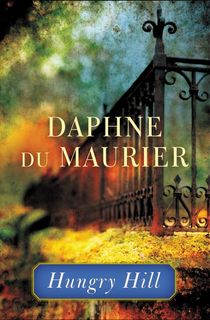
Hungry Hill
Fans of Netflix’s The Fall of the House of Usher (2023) will delight in du Maurier’s gothic tale of generational greed and the price one family pays for it.
Though the Netflix series was loosely based on a short story of the same name by Edgar Allen Poe, Hungry Hill more closely resembles the series in plot and theme, while retaining the dark mood and interminable sense of foreboding that make the series so dreadfully gripping.
Hungry Hill tells the story of a century of Broderick men, whose family grew wealthy through a copper mine its patriarch, John Broderick, built on Hungry Hill.
Overshadowing their good fortune is their vicious feud with the Donovans, who claim rights to the land the Brodericks now inhabit and will do anything to get it back.
Set over the span of a century and divided into five parts, each focused on one heir to the Broderick inheritance, Hungry Hill is the story of a deadly feud and an even deadlier curse—though what truly afflicts the Brodericks is up to you to decide.
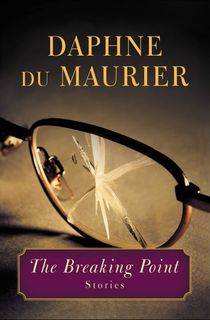
The Breaking Point
In typical gothic fashion, du Maurier blurs the lines between imagination and reality with this chilling short story collection.
Suspenseful fantasies, murderous dreams, and half-forgotten worlds are brought to light in these eight tales where the fragile balance between emotion and reason is constantly fraught.
Filled with what the New York Herald-Tribune described as “the appeal of romance and the clash of highly-charged emotions,” The Breaking Point is a great collection for readers looking to sample the darker side of du Maurier’s catalog.
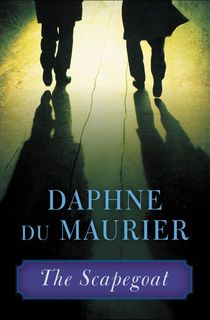
The Scapegoat
A chance encounter between a Englishman and a Frenchman at a train station changes the lives of both forever. When John and Jean first meet each other, they are stunned to realize they are perfect doppelgangers.
Endeared to each other by the coincidence, the two embark on a night of drunken revelry together. The good times are not to last, however, as John wakes up the next day to find that Jean has stolen his identity and disappeared.
Left with no choice but to assume the Frenchman’s identity, John enters a dizzying new reality as the owner of a chateau, leader of a tanking business, head of an irascible family, and master of nothing.
Fans of Fyodor Dostoevsky’s The Double will enjoy this dark, clever, and gripping tale of mistaken identity and the mutability of the self.
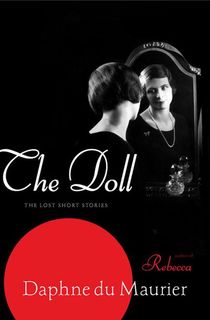
The Doll
This collection of thirteen of du Maurier’s early short stories, some in print for the first time since their original publication in the 1930s, is a testament to the innate and enduring power of du Maurier to titillate and terrify.
Remarkably, all the stories included were written before du Maurier’s 23rd birthday. Fans of her work will delight in her experimentation with themes and characters that she would go on to develop in her later work.
For example, the main character of the lurid “The Doll” is a woman named Rebecca who keeps a dark secret from her lover, while “The Happy Valley” chronicles a young woman’s intensifying bouts of dreams and deja vu involving her imagined future husband.
The Doll is a perfect addition to the bookshelf of any du Maurier fan looking for a glimpse into the development of their favorite author.

My Cousin Rachel
Yet another one of du Maurier’s works to be adapted for the big screen, My Cousin Rachel follows Phillip Ashley, who, following the death of his parents when he was a child, is taken in by his wealthy older cousin, Ambrose. Ambrose is determined not to marry and has promised Phillip his grand estate when he passes.
That moment comes sooner than expected when Ambrose dies suddenly while on a trip to Florence. Rather than commence a life of solitude at his new estate, however, Phillip is soon greeted by the arrival of Rebecca, with whom Ambrose fell in love and married before his untimely death.
As Phillip finds himself inexplicably drawn to the beautiful and elegant woman who now shares his home, an unsettling thought begins to nag at him: did Rebecca kill his cousin?
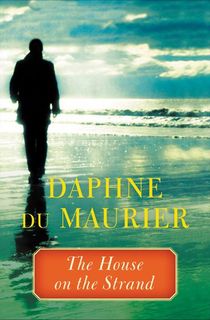
The House on the Strand
Professor Magnus Lane offers to lend his friend Dick Young his house in Cornwall on one condition: Dick will test out a new drug that Magnus has discovered in his scientific research.
Dick agrees, and when he samples his friend’s potion, he finds he can do the impossible: time travel while staying in place, flinging himself all the way back into Medieval Cornwall.
The elixir wears off after a few hours, but Dick, exhilarated by his adventure, is far from done with it.
The more he travels back in time, the less he desires to live in the modern world, especially once he falls for the beautiful Lady Isolda…
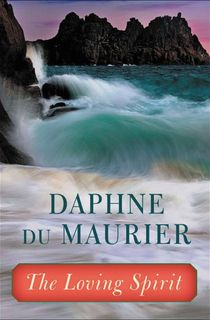
The Loving Spirit
Janet Coombe longs for the adventurous life of the sailors who pass through Cornwall, but the 1830s have other plans for her. Circumstance forces her to marry her cousin Thomas, a boat-builder, and settle down, so close to the sea yet so far.
Her story is far from over, through. Through her son and her grandchildren, Jane’s adventurous spirit is passed down through generations, keeping them afloat as they navigate loss, war, and social change in Britain.
Another generational saga, du Maurier’s debut album showcases her romantic side. Like Hungry Hill, it intricately plots the history of a single family, with vastly different, but equally as powerful, results.
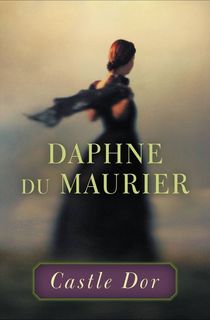
Castle Dor
Before there were Romeo and Juliet, there were Tristan and Isolde, the star-crossed lovers whose tragic romance has inspired countless poems, operas, and works of art through the centuries.
In Castle Dor, du Maurier tries her own hand at the timeless Cornish tale—and the result is magical.
In 20th-century Cornwall, a serendipitous encounter between the newly married Linnet Lewarne and the Breton onion-seller Amyot Trestane sparks an enchanting but doomed love affair in the footsteps of Cornwall’s most legendary lovers.
Originally the unfinished last novel of the British novelist Sir Arthur Quiller-Crouch, Castle Dor was passed on to du Maurier by Crouch’s daughter, who had absolute confidence in du Maurier’s ability to do the tale justice.
After reading du Maurier's work, it's not hard to see why.
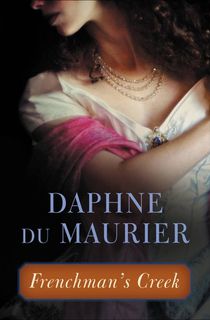
Frenchman's Creek
One of the greatest examples of du Maurier’s celebrated foray into historical romance, Frenchman’s Creek was made into a major motion picture in 1944, and again in 1998.
It follows the restless Lady Dona, who flees the confines of London’s Restoration Court to the British countryside.
Dona eventually finds herself in remote Navron expecting to find nothing but solitary woods and hidden creeks. Instead, she meets a bold French pirate being hunted by all of Cornwall.
Together, they embark on an adventure filled with passion and peril. Dona has a difficult choice to make: sacrifice her lover to a certain death—or risk her own life to save him.




